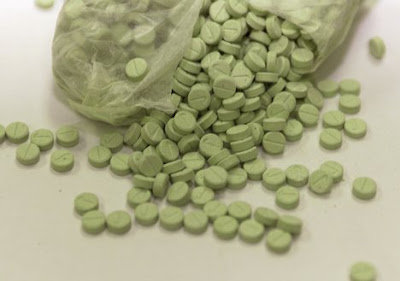 And the Government is daring to keep kids on drugs.
And the Government is daring to keep kids on drugs.The U.S. Food and Drug Administration had heard about the suicide of Gabriel Myers.
Myers' death by hanging happened in a Florida foster home last year, but that wasn't the main reason it triggered a major reaction at Florida's Department of Children and Families.
The real reason: He was 7 years old.
Whatever else might have helped lead such a young child toward ending his life, one detail was impossible to ignore: The boy was being treated with three different psychotropic medications.
Medications of that sort make some people more depressed or even suicidal, and their effects when combined are harder to predict, especially in children.
So DCF did a quick check on how many foster children were being given such drugs. Troubling facts emerged.
Not only was the percentage high, it was not really known. And, in more than a third of known cases, required approval permission documents were missing.
DCF Secretary George Sheldon quickly acknowledged the problem and started a study group to learn more and give advice. And a year later, the picture is at least more clear. Very few files lack required documentation now.
In the Sarasota-Manatee-DeSoto county region, 11 percent of foster children are given psychotropic meds. Statewide, it is 13 percent.
Some critics insist too many foster parents, lacking the skill or patience to work with troubled children who arrive as strangers, are still too quick to see medication as the way to curb problem behavior or just keep foster children quiet, no matter the side effects.
Drugs helpful to some adults can react differently in children, who may suffer more extreme and unintended side effects. And so, clinical trials on children are needed, but it it is a scary field of study.
Jill Hartzler, an associate FDA commissioner, responded that the FDA - which oversees the studies to make sure children's involvement is approved and understood by parents or guardians - didn't have an exact number. Or even an estimate. The FDA doesn't have the slightest idea how many Florida foster kids are or have been involved in its drug studies.
But that wasn't the weirdest part. Hartzler and the FDA also urged that Florida not bar foster kids from drug trials, arguing that benefits can outweigh risks.
With children offering the pharmaceutical companies a greater market and thus greater profits...
money comes first.
http://www.cbsnews.com/8301-504083_162-20000546-504083.html
http://www.furiousseasons.com/archives/2009/04
http://www.drugawareness.org/recentcasesblog/depression
http://mentalhealth.about.com/cs/psychopharmacology/a/kidzoloft.htm
News Radicals.

















